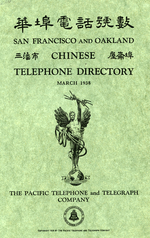Even if this story is fake news, it should remind us that AI bots, at least in their present state, just parrot what they find on the 'Net. Garbage in, Garbage out.
I am increasingly annoyed by the Dumbification of the Internet.
There was a time when I was hugely impressed by Wikipedia. It did have its errors and stupidities, but generally served as a great summary of practical information. The fact that its content was not copyrighted seemed like a plus.
But starting a few years ago, I noticed that almost all the top Google hits responding to a query about science or history were verbatim copies from the Wikipedia article. This might be OK when the Wikipedia article is correct, but that article was often incomplete, misleading or even completely wrong.
At least the Wikipedia information was curated by real human beings, often with expertise, and usually with a sincere desire to improve the information's correctness. Now the "information" is "curated" by AIs which -- despite having countless trillions of text bytes to choose from -- have the IQ of an imbecile. Many of the AI-generated Summaries Google now starts with in its search results are misleading or even totally wrong. A human can fix Wikipedia when it's wrong, but how can an ordinary minion fix the mistakes a bot makes? Even if the AI gets a correct answer 98% of the time, that leaves 2% where the correct answer is almost unavailable, and may eventually disappear from human knowledge! This is less of a problem for researchers with access to good libraries, but I come up against paywalls and often have only Google AI's lies to work with, or bad Wikipedia content copied over and over and over.
Here's a specific example that happened just now, and which motivated this post.
My fans (if any) here know that the history of math and science interest me. Just now, for some reason, I was curious about the first man-made prism. (Raindrops serve as natural prisms, creating rainbows.) What scientist made a prism? Did he connect the results with rainbows? I asked Google:
Google proudly displayed Sir Isaac Newton as the answer. It offered 4 or 5 phrasings of related questions; Newton, Newton, Newton and Newton were the only answers it gave.
Thanks Google. I already knew that Newton was one of the very very greatest scientists who ever lived, was quite aware of his work with prisms, and greatly admired his genius. But was he really the first human to deliberately construct a prism? I rephrased the query and kept asking. (Adding +prism or -Newton) to the queries was useless: the imbecilic bots know they're smarter than humans and discount such "hints.") Newton, Newton, Newton, Newton as far as the eye could see. A few hits pointing to actual histories of science MIGHT have better answers, but needed $22.99 per article.
Many would have given up, concluding that "Newton" was the correct answer. But I persisted and after quite a while came up with
https://mariopblog.wordpress.com/tag/theodoric-of-freiburg/ :
At a time when Peter Peregrinus provided the only real precedent for experimentation, Theodoric [of Freiberg, c. 1250 – c. 1311] set about systematically investigating the paths of light rays that generate radiant colors in the earth’s atmosphere, and did so largely by experimental means. He utilized spherical flasks filled with water, crystalline spheres, and prisms of various shapes to trace the refractions and reflections involved in the production of radiant colors. He also worked out a theory of elements that was related to his search for optical principles, and which stimulated experimentation along lines that could more properly be called verification than anything we have seen thus far. (…) He thus has been hailed as a precursor of modern science and his work read as though he were using mathematical and experimental techniques developed only in the seventeenth century.
The core of the originality and novelty of his method consists in the fact, that Theodoric did not only observe the way in which rainbows are produced in nature (experience), but also attempted to duplicate the process under controlled laboratory conditions, where he could observe all component factors in detail (experiment).
Interesting factual tidbit? Probably not; pursuing historical tidbits is just a fetish for me. But that blog will disappear (or be completely drowned out) in a few years and people will have no recourse to anything but disinformation from the AI overlords. (BTW, Kamal al-Din al-Farisi, a contemporary of Theodoric) did similar work.)


